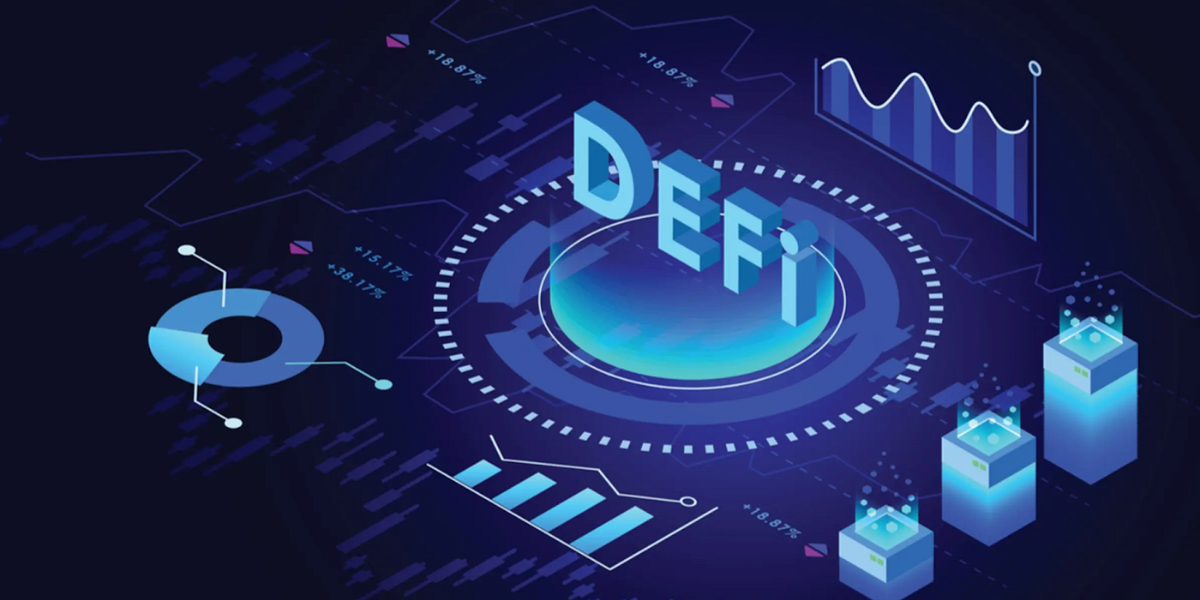
In the ever-evolving landscape of finance, the rise of Decentralized Finance (DeFi) has been nothing short of revolutionary. As we navigate the decentralized terrain, the paramount concern is DeFi security. In this comprehensive guide, we unravel the risks and unveil effective solutions to fortify your journey in the decentralized financial realm.
Understanding DeFi: A Paradigm Shift in Finance
Decentralized Finance, or DeFi, represents a transformative shift away from traditional centralized financial systems. Operating on blockchain technology, DeFi eliminates intermediaries, providing users with direct control over their assets.
The Security Dilemma: DeFi’s Achilles’ Heel
While DeFi offers unprecedented financial freedom, it is not immune to security vulnerabilities. Smart contract exploits, price oracle manipulation, and liquidity pool vulnerabilities pose significant risks, emphasizing the need for robust security measures.
Smart Contract Risks and Exploits
Smart contracts, the backbone of DeFi protocols, are susceptible to coding vulnerabilities. Exploits, such as reentrancy attacks and flash loan exploits, can result in substantial financial losses. Vigilance and code audits become imperative to mitigate these risks.
Price Oracles: Navigating the Truth
Price oracles, responsible for providing accurate real-world data to smart contracts, are potential weak points. Manipulation of these oracles can lead to misleading information, affecting the integrity of transactions. Diversifying oracle sources and regular audits are crucial to maintaining accuracy.
Liquidity Pool Risks: A Balancing Act
DeFi platforms heavily rely on liquidity pools. Impermanent loss, rug pulls, and flash loan attacks are inherent risks. Properly assessing the risk-to-reward ratio and choosing reputable platforms with transparent protocols become paramount for users.
Securing Your Digital Wallet: The First Line of Defense
Digital wallets are the gateways to your DeFi journey. Implementing robust security practices, such as hardware wallets, multi-signature authentication, and regular audits, ensures that your digital assets remain safeguarded.
Insurance Protocols in DeFi
As DeFi matures, insurance protocols are emerging to mitigate the impact of security breaches. Decentralized insurance platforms offer users a safety net, compensating for losses incurred due to unforeseen vulnerabilities.
Regulatory Landscape: Navigating Legal Frameworks
The decentralized nature of DeFi presents challenges in navigating regulatory landscapes. Staying informed about evolving regulations and compliance measures is vital for both users and DeFi projects.
Continuous Improvement: The Role of the DeFi Community
The strength of DeFi lies in its community. Continuous communication, collaborative efforts, and sharing best practices within the community contribute to the ongoing improvement of security standards.
Final Words: Empowering Your DeFi Journey
As we traverse the decentralized financial landscape, security emerges as the cornerstone of a successful DeFi experience. Through vigilance, education, and community collaboration, we empower ourselves to navigate the risks and reap the benefits of the decentralized financial revolution.
Commonly Asked Questions
Q1. How secure are DeFi platforms against smart contract exploits?
DeFi platforms are susceptible to smart contract exploits, emphasizing the need for regular audits and vigilant coding practices to enhance security.
Q2. What is impermanent loss, and how can users mitigate its impact in liquidity pools?
Impermanent loss occurs in liquidity pools. Users can mitigate its impact by carefully assessing risk, choosing reputable platforms, and understanding the dynamics of liquidity provision.
Q3. Why is securing digital wallets crucial in DeFi?
Digital wallets act as the first line of defense in DeFi. Implementing robust security measures, such as hardware wallets and multi-signature authentication, is essential to safeguard digital assets.
Q4. How do insurance protocols in DeFi work?
Insurance protocols in DeFi offer a safety net by compensating users for losses incurred due to unforeseen vulnerabilities, providing an added layer of financial protection.
Q5. What role does the DeFi community play in enhancing security standards?
The DeFi community plays a pivotal role in continuous improvement. Collaborative efforts, information sharing, and community-driven initiatives contribute to raising security standards in the decentralized financial space.
Advertisement








